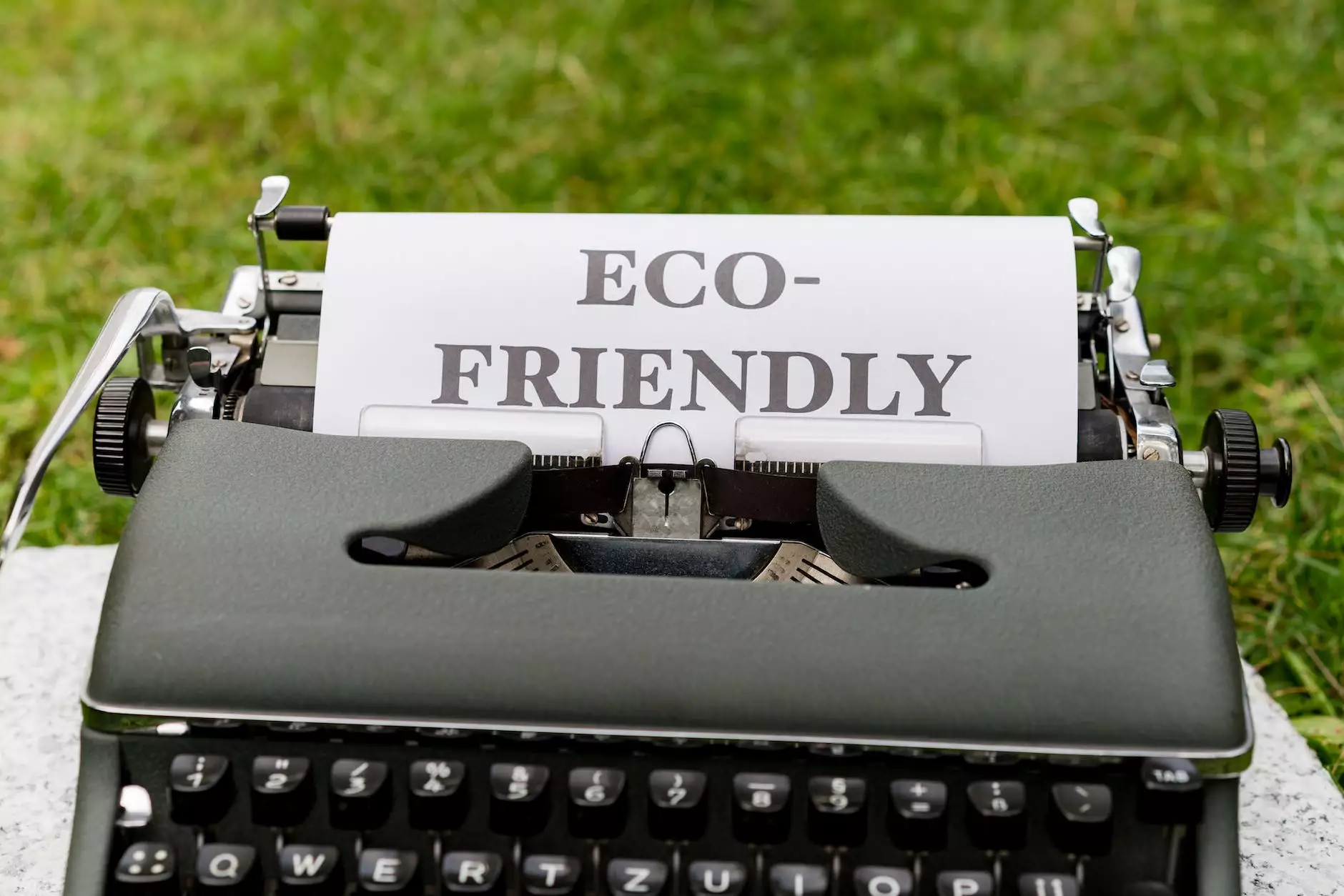Staying Green: How You Can Become More Eco-Conscious

Introduction
Welcome to Anointed and Blessed Home Health Care, your trusted partner in promoting a healthy and sustainable lifestyle. In this article, we will explore practical ways to become more eco-conscious and reduce our environmental impact. By implementing these tips, you can contribute to a greener and more sustainable future for our planet.
Why Become More Eco-Conscious?
As our world faces pressing environmental challenges, it is crucial that we all take responsibility for our actions. By embracing an eco-conscious mindset, we can minimize our carbon footprint, conserve natural resources, and preserve biodiversity. Additionally, adopting sustainable practices can lead to cost savings, improved health and well-being, and a better quality of life for future generations.
Understanding Sustainability
Sustainability is the key to long-term environmental stability. It involves meeting our present needs without compromising the ability of future generations to meet their own needs. Sustainable practices encompass various aspects, including energy conservation, waste reduction, water management, and conscious consumerism. Let's explore each of these areas in more detail:
1. Energy Conservation
Reducing energy consumption is a fundamental step towards a greener lifestyle. Simple actions like turning off lights when not in use, unplugging electronics, and using energy-efficient appliances can significantly lower your energy usage. Additionally, consider alternative energy sources such as solar panels or wind turbines to generate clean electricity for your home.
2. Waste Reduction
Minimizing waste is another crucial aspect of sustainable living. Embrace the 3Rs: Reduce, Reuse, and Recycle. Opt for reusable products instead of single-use items, compost organic waste, and properly recycle materials like paper, plastic, and metal. By reducing the amount of waste sent to landfills, we can limit environmental pollution and conserve valuable resources.
3. Water Management
Water is a precious resource, and conserving it is vital for both the environment and our own well-being. Install water-efficient fixtures in your home, fix leaks promptly, and practice responsible water usage. Consider collecting rainwater for garden irrigation or installing a greywater system to reuse water from showers and sinks. Small changes in daily habits can make a significant difference in preserving this finite resource.
4. Conscious Consumerism
Being a conscious consumer means making informed choices about the products we purchase. Support companies that prioritize sustainability and ethical practices. Look for eco-friendly certifications, organic labels, and fair-trade logos when shopping. Choose durable, long-lasting items that are made from sustainable materials, and support local businesses whenever possible.
Bringing Eco-Consciousness Home
Now that we understand the importance of becoming more eco-conscious, let's explore some practical tips to incorporate sustainable practices into our daily lives:
1. Eco-Friendly Home Upgrades
Consider making eco-friendly upgrades to your home. Install energy-efficient windows, improve insulation, and use eco-friendly building materials. Planting trees, creating a garden, or starting a compost pile are also great ways to enhance the environmental sustainability of your property.
2. Sustainable Transportation
Reduce your carbon footprint by opting for environmentally friendly transportation methods. Utilize public transport, carpool with others, or try biking or walking for shorter trips. If you own a vehicle, choose hybrid or electric models that emit fewer pollutants and have better fuel efficiency.
3. Mindful Consumption
When shopping for groceries and household items, choose products with minimal packaging, buy from bulk bins to reduce waste, and use reusable shopping bags. Be mindful of the environmental impact of your food choices by opting for locally sourced, organic, and seasonal produce whenever possible.
4. Sustainable Energy Usage
Incorporate renewable energy sources into your home by installing solar panels or utilizing geothermal heating and cooling systems. This allows you to become more self-sufficient and reduce your reliance on fossil fuels, contributing to a healthier planet.
Conclusion
Becoming more eco-conscious is a journey that requires commitment and mindful choices. By implementing the tips shared in this article, you can make a positive impact on the environment and inspire others to follow suit. Remember, even small changes add up to significant results. Join Anointed and Blessed Home Health Care in our mission to create a greener, more sustainable future for all.









